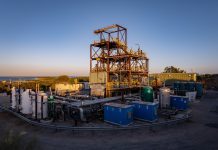
Swinburne University is collaborating with global technology company Siemens in building a $5.2M Energy Transition Hub at its Hawthorn campus.
Featuring some of the most advanced digital energy technology from Siemens as well as Swinburne’s technical research and development expertise, the hub aims to build a future energy grid laboratory accessible to students and industry.
The centre will also enable users to create digital twins of energy grids, map scenarios, research new discoveries, as well as develop original and creative hypotheses, and test results.
“We are incredibly excited about this new collaboration with Siemens, who has partnered with Swinburne over many years to share in our vision of people and technology working together to build a better world”, said Deputy Vice-Chancellor Research Professor Karen Hapgood.
The professor also pointed out that industry, science, and the government must collaborate to achieve Australia’s ambitious carbon reduction goals.
“The new Siemens Swinburne Energy Transition Hub will be working on new technologies to improve efficiency, supply, integration, storage, transport and use, as well as how we can improve existing technologies and frameworks,” she added.
In addition to R&D and commercialisation initiatives, the hub will offer short training to experts in the field.
Siemens software and the business’s practical industry experience will be incorporated into engineering technology courses, which will also benefit Swinburne students.
“Our relationship with Swinburne University of Technology is long-standing and we’re proud to extend it through the new Siemens Swinburne Energy Transition Hub,” said Peter Halliday, CEO and Chairman of Siemens Australia and New Zealand.
The CEO also emphasised that people can do more with less thanks to digitalisation, as technology helps us identify opportunities for decreasing energy consumption and emissions.
“Collaboration between industry and academia is critical to driving better outcomes on key topics of national importance such as energy transition,” Mr Halliday noted.



















